Tibetan Headlines
Jan 22: Study Restrictions

Restrictions on the study of the Tibetan language in Tibet have been reported by Radio Free Asia who say that in many area residents are taking classes in secret. They describe a heightened Chinese police presence with public workshops shut down in Pema county in the Golog Tibetan Autonomous Prefecture. Many believe that study groups are deemed “illegal associations” leading to fears of detention or arrest.
Jan 21: R&R
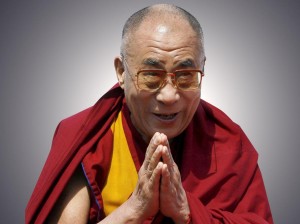
His Holiness the Dalai Lama is in the United States for treatment and rest. His Holiness said that he has no specific health complaints, although he does have a problem in his right eye. His office issued a statement that he will: “undergo prostate treatment at the Mayo Clinic in Rochester, Minnesota, followed by a period of rest; his regular engagements will resume in March”.
Jan 20: Google Tibet!

Google, the global search engine, has a newly built-in font that supports the Tibetan alphabet in its latest Operating System, Marshmallow 6.0. The Tibet Action Institute has been pushing for Tibetan script on android-based phones and says the development could prove a lifeline for Tibetans. Previously only the Apple i-phone supported Tibetan script
Jan 19: Mass Surveillance
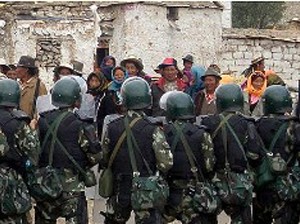
According to Human Rights Watch (HRW), Chinese authorities have extended massive surveillance program in villages across the Tibet Autonomous Region (TAR). 21,000 Chinese officials deployed in Tibetan villages act as spies controlling protests and ensuring that Tibetans support the Communist Party and not the Dalai Lama. The surveillance program was due to end in 2014 but HRW warns that the spies continue spying and shows no sign of leaving.
Jan 18: Poachers Caught
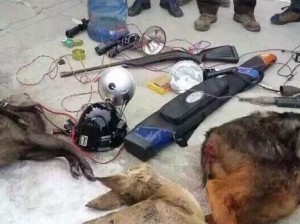
Five Chinese poachers have been caught in Dzoege County, Ngaba by Tibetans who have been assigned to guard wildlife. They caught the poachers near Basu Village and handed them over to the local authorities. Radio Free Asia reported that two rifles, a jeep and the carcasses of 12 animals were confiscated. The Sichuan government website later confirmed the detentions, saying the poachers are now under investigation.
Jan 17: Visit to Dhasa

US Special Coordinator for Tibetan Issues Sarah Sewall has met HH the Dalai Lama before wrapping up her two-day official visit to the Dharamshala. She also met the Tibetan Prime Minister in Exile Lobsang Sangay who has returned from his Japan tour. Sewell met Tibetan youngsters and activists as well as representatives of various Tibetan non government organisations. It is her second visit to Dharamshala.
Jan 16: Released
Kelsang Khedrup, a Tibetan political prisoner, was released on January 5 after completing his seven year sentence in Mianyang prison in Sichuan. He was arrested in 2009 for “inciting ethnic division” and “disrupting peace” and held incommunicado for a year. His sister has said he contracted asthma while in detention. Kelsang is originally from Rabkar Township in Kardze; he has been reunited with his wife and two children.
Jan 14: Gold Medal

Tenzin Yullo, a student at SRM University in Tamil Nadu has topped her batch of MSc students and won a gold medal for her excellence in Mathematics. According to Phayul, Tenzin said “I recall people saying that maths is not in Tibetan genes, which is completely untrue. When you show interest and a required patience, anyone can achieve success.” Tenzin is a former student of Tibetan Children’s Village.
Jan 13: Suicide
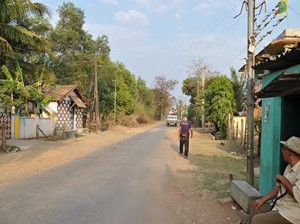
Yeshi Jungney, a camp leader at Mungod Tibetan settlement Camp number one, has committed suicide. Phayul reported that he left a note and it is understood he felt unsupported following an incident which took place at the preliminary election on October 18 last year when he was involved in a scuffle and allegedly manhandled by a monk. Yeshi was a former soldier in the Special Frontier Force.
Jan 13: Critical Condition

Kalsang Tsering, a former Tibetan political prisoner, has been flown from Lhasa to Sichuan for medical treatment. He was imprisoned for seven years for taking part in March 2008 Tibetan uprising against Chinese rule and released last year. During his term in prison, he sustained a large open wound on his back, a result of continuous torture while in detention. Sources say there is very little hope for his recovery.
Jan 11: Tibetan Search Engine

According to Xinhua, the Chinese state-run news agency, China’s first Tibetan language search engine test has begun. It is planned to release “Cloud Tibet” in the second half of this year. A team of around 150 people from a Tibetan language research centre in Hainan Tibetan Autonomous Prefecture in Qinghai province has led the project which was launched in April 2013.
Jan 10: More Air Passengers

The number of cities linked to Tibet via air transport has risen from seven to 40 in recent years. Last year alone saw 13 new air routes into Tibet. Xinhua, China’s state run news agency, reported that a new record of 3.63 million air passengers arrived in Tibet in 2015, a 15.2% increase over the previous year. The report also stated there are plans to open more new air routes into Tibet.
Jan 9: Tibetan Language Banned
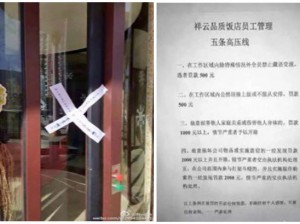
Hotel Shangyul, a Chinese owned hotel in Rebkong County in Qinghai Province in the Tibetan Autonomous Prefecture, has been closed following a protest from local Tibetans. The hotel banned people from speaking Tibetan in the hotel, imposing a fine of 500 yuan and threatening job losses. A local Tibetan has complained, saying that banning a minority language is against the Chinese constitution.
Jan 7: Detained and Warned
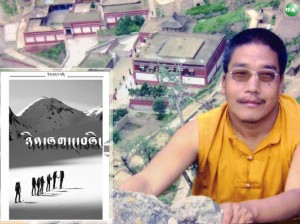
Lu Kunchok Gyatso, a monk from Lamo Dechen monastery in Qinghai province in the Tibetan Autonomous Prefecture, was arrested on December 18 and taken to Chentsa county detention centre. He was interrogated for hours about his book Fifty Four Days which documents his experiences of escape to India in 1994. He was later released but warned against publication or distribution of the book. Gyatso studied at Depung Domang monastery in South India before returning to Tibet in 2000.
Jan 6: Chatral Rinpoche
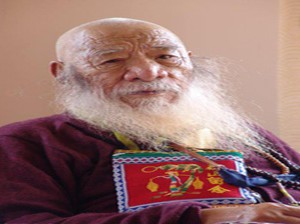
His Eminence Chatral Sangye Dorje, commonly known as Chatral Rinpoche and one of the most prominent Dzongchen masters of the Nyingma School of Tibetan Buddhism, passed away at the age of 102 in Nepal on December 31, 2015. Rinpoche was born in the Kham region of Tibet. He was a staunch advocate of vegetarianism and lived his life as a wandering yogi on retreat in remote areas of India and Nepal.



